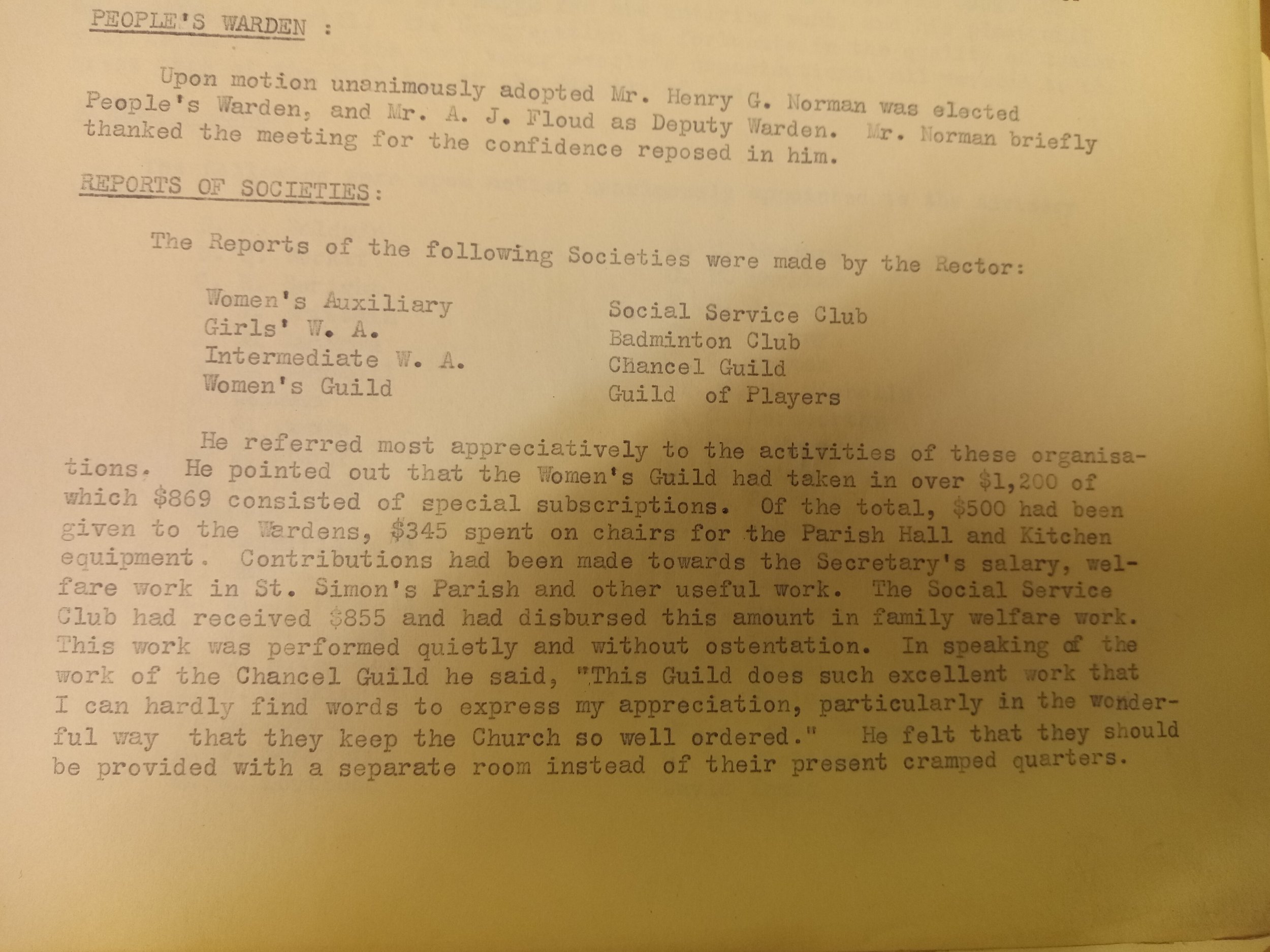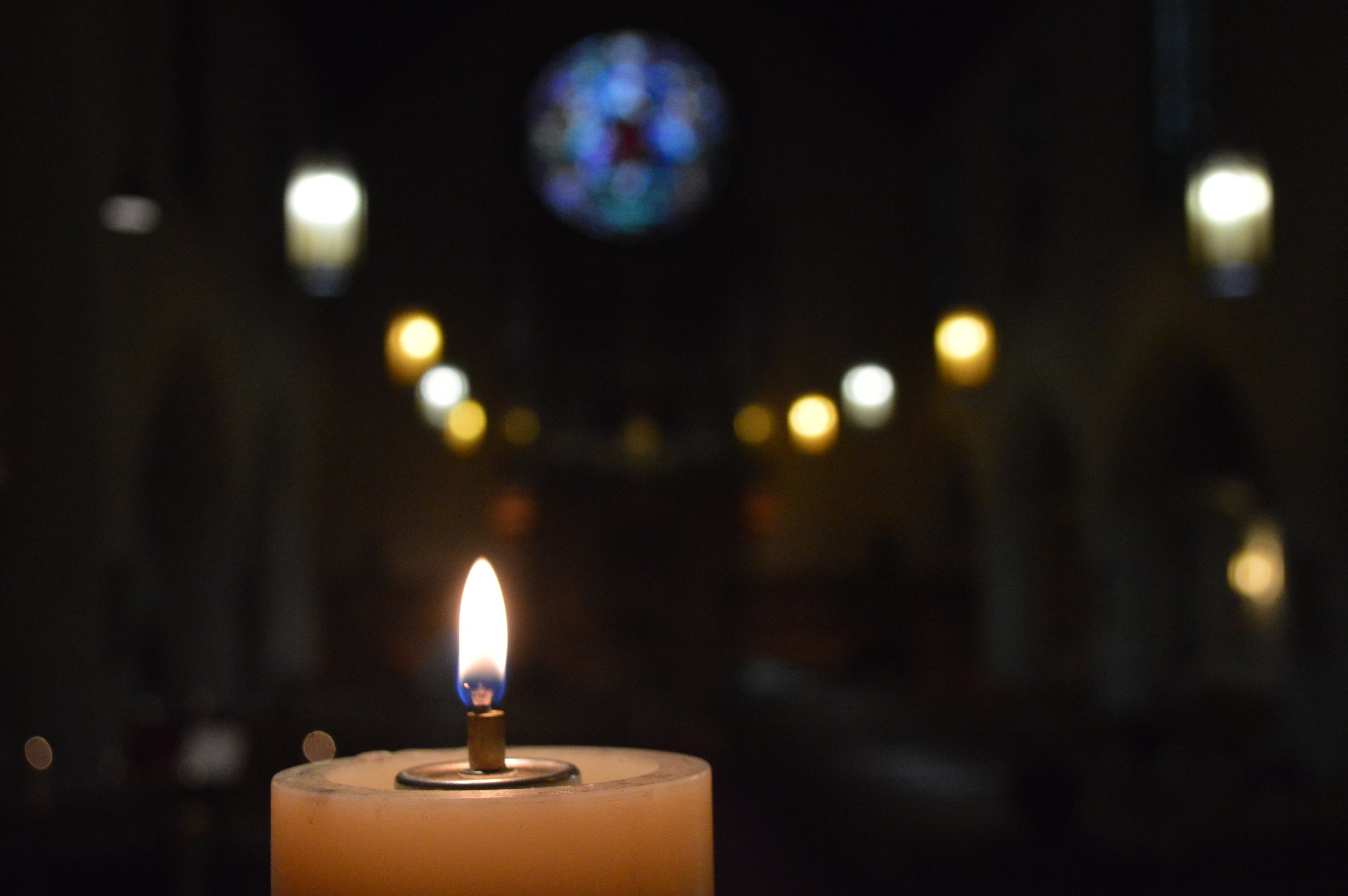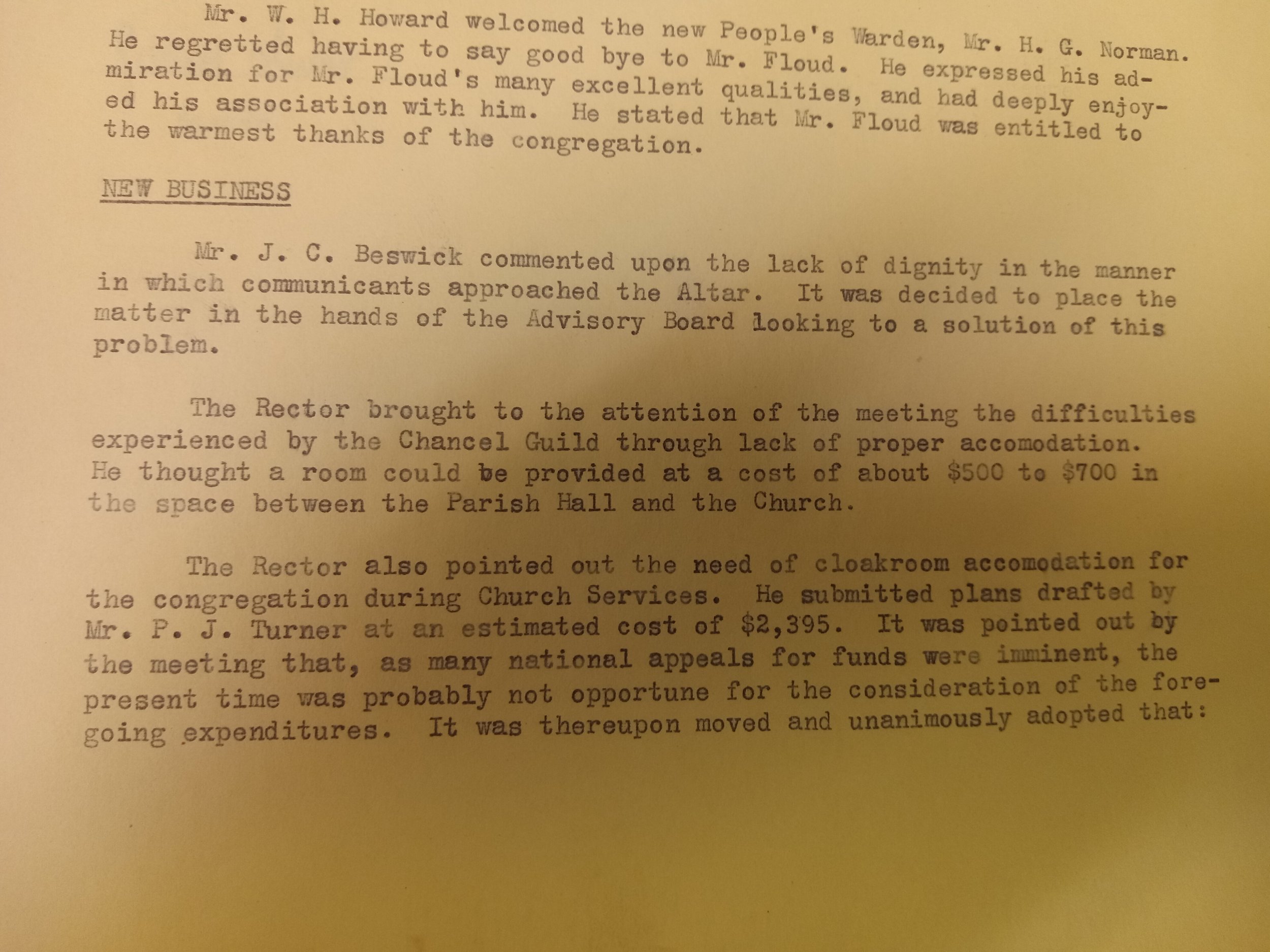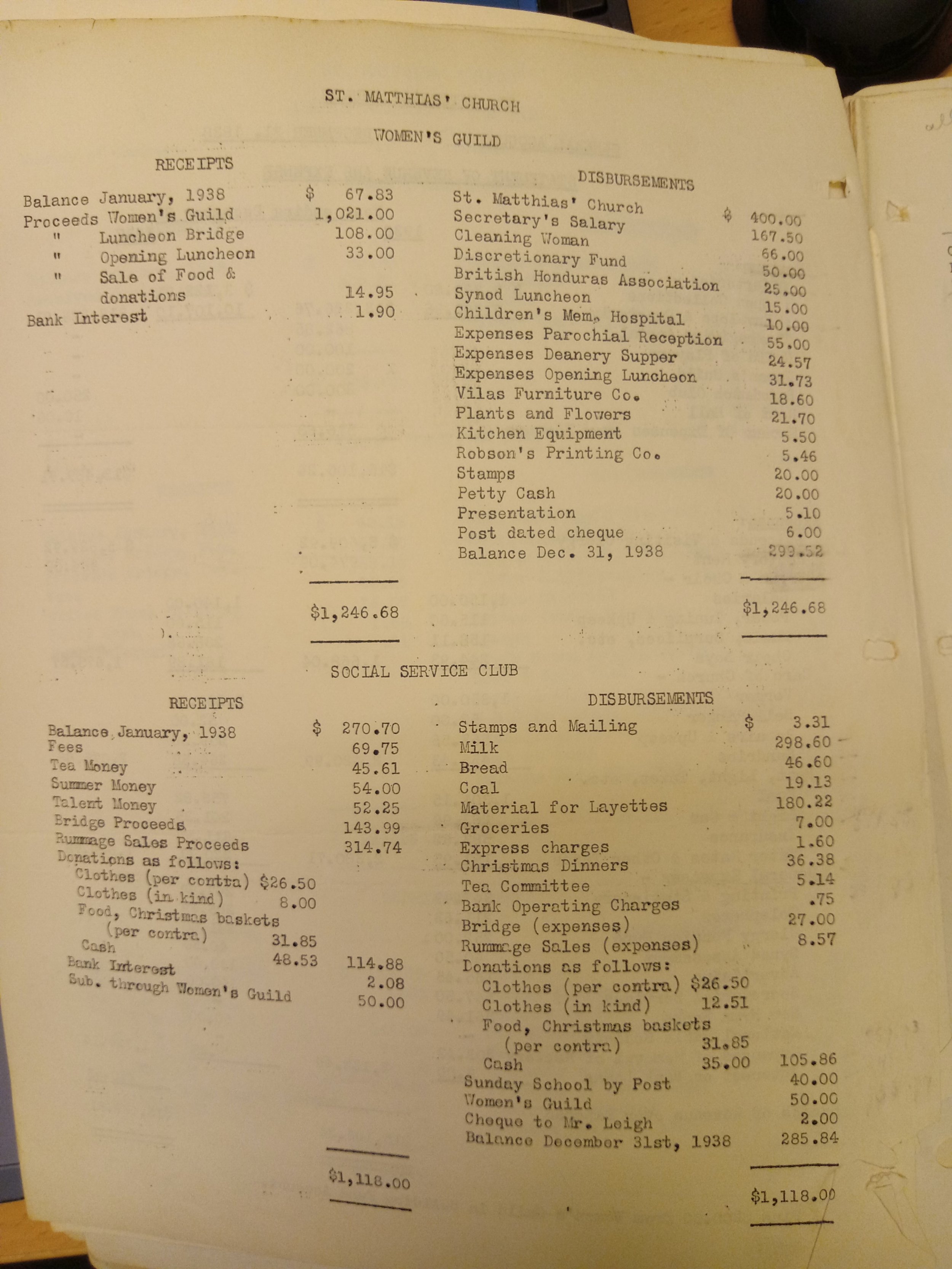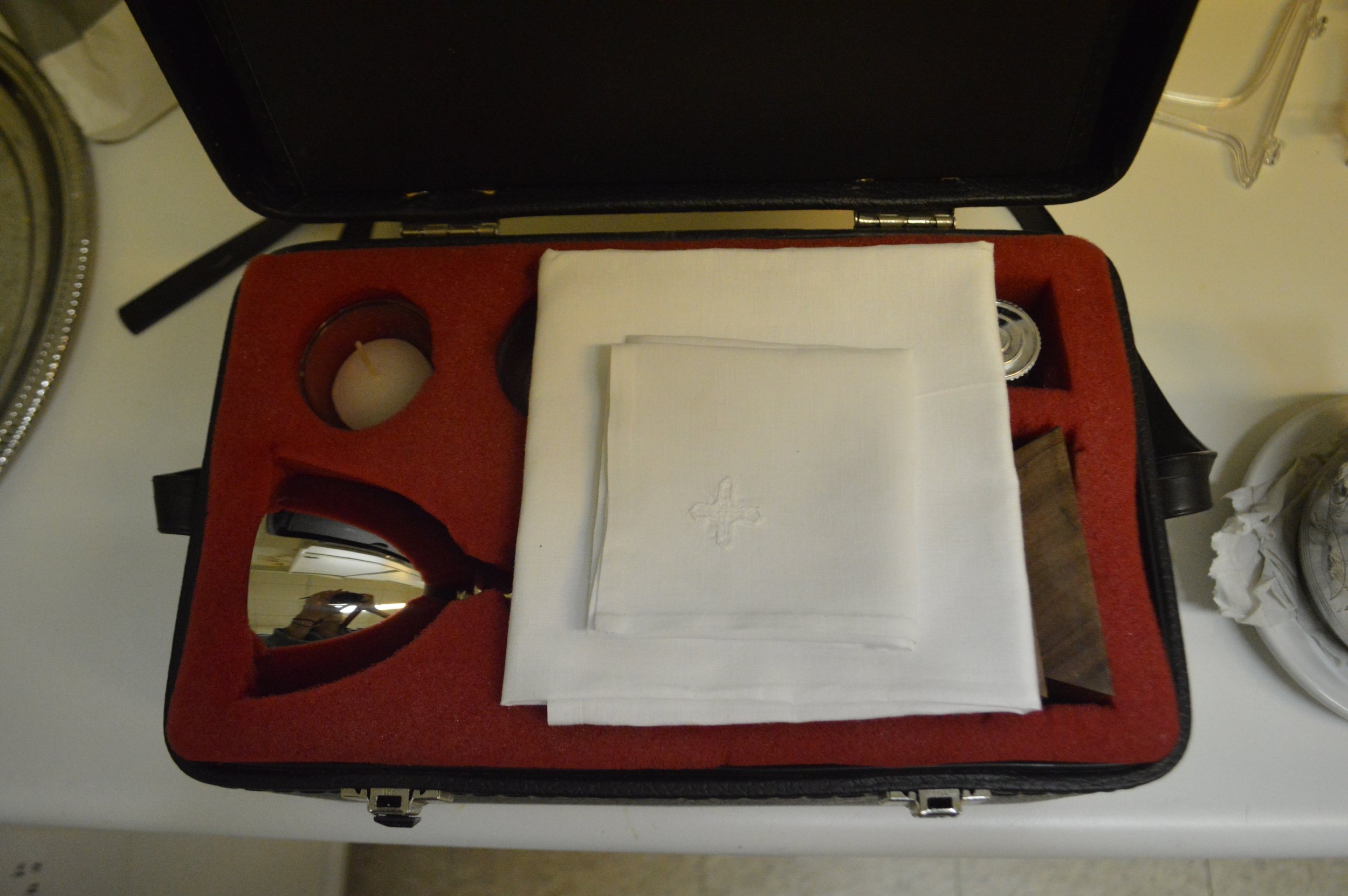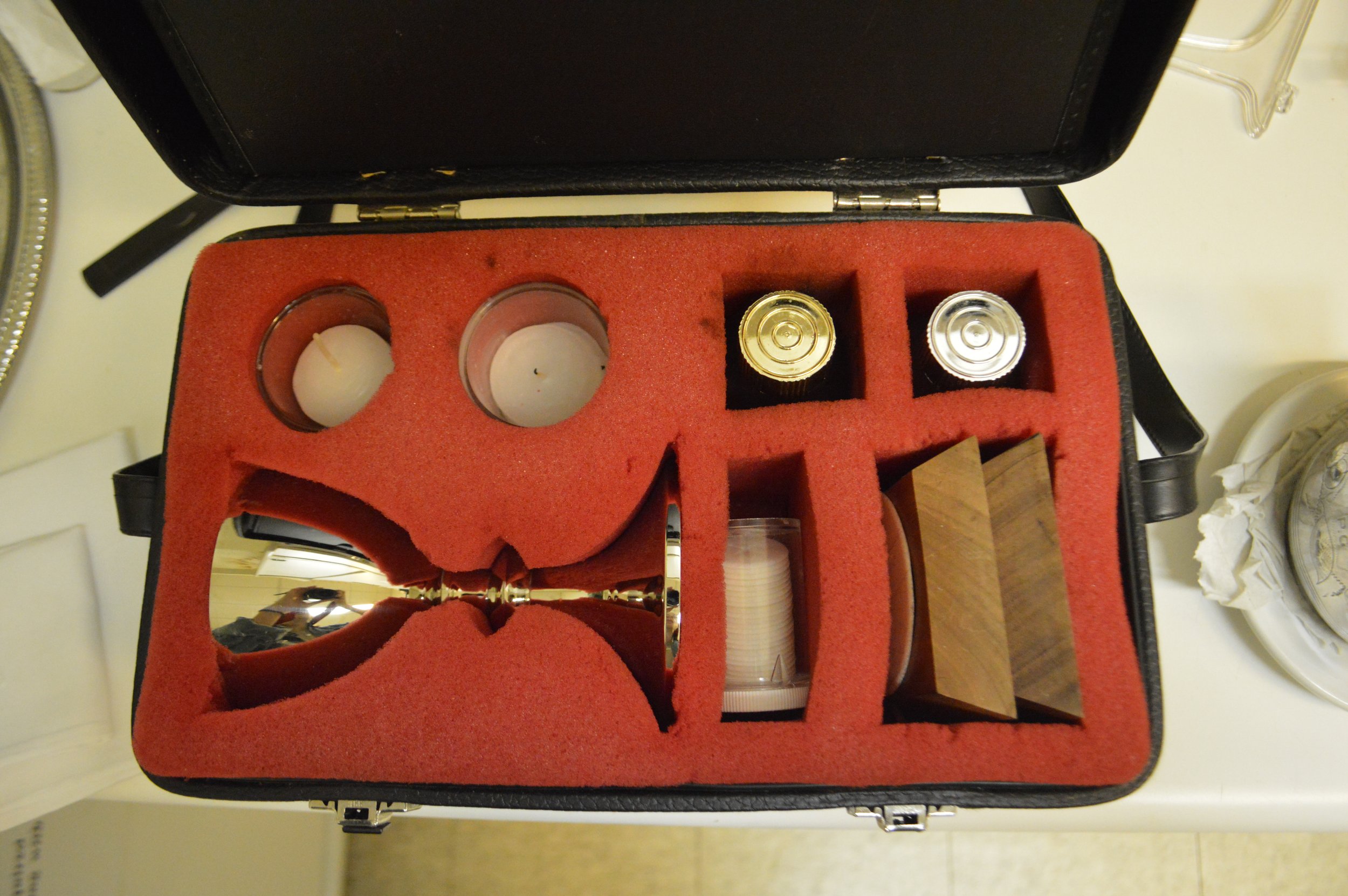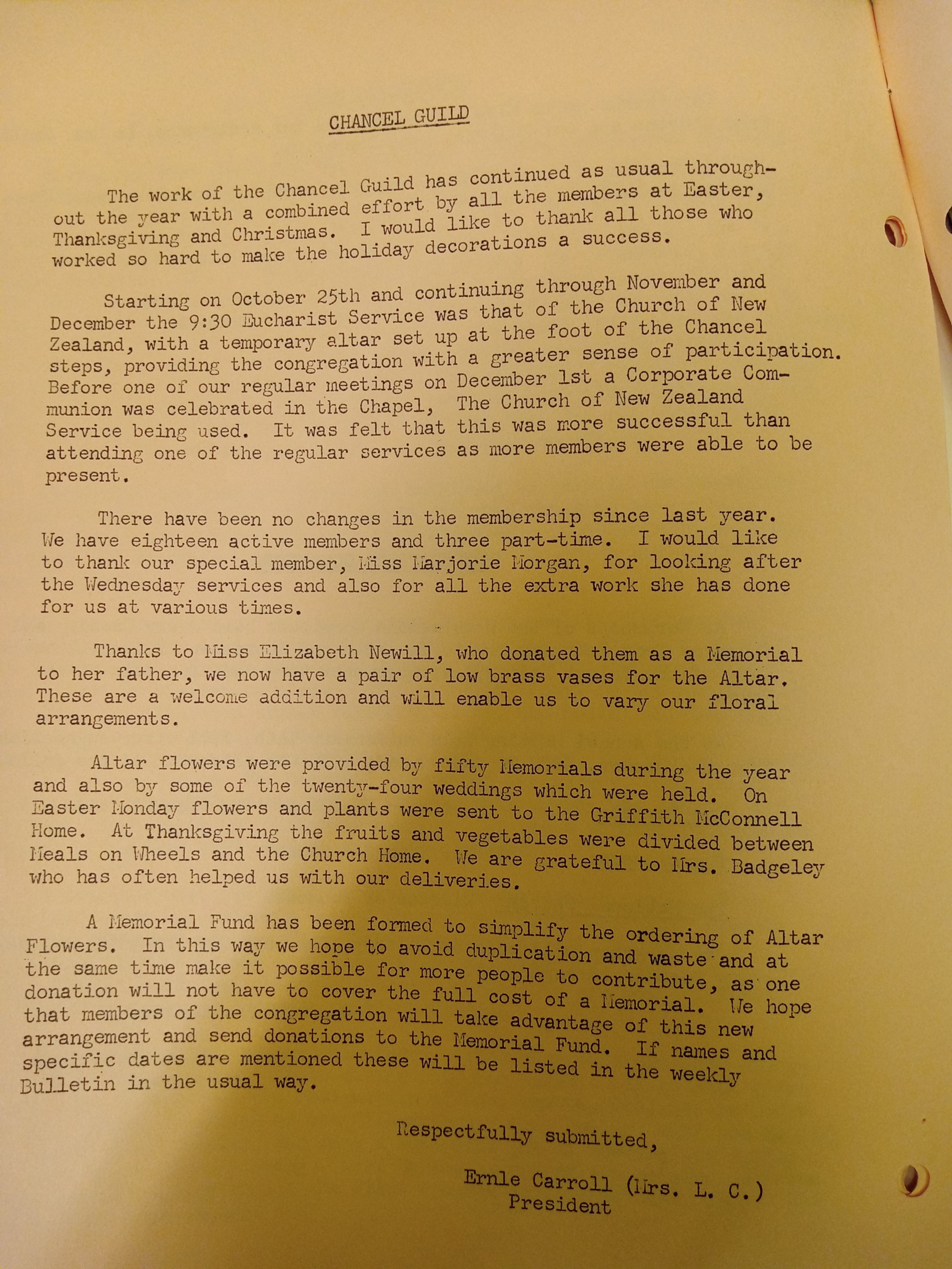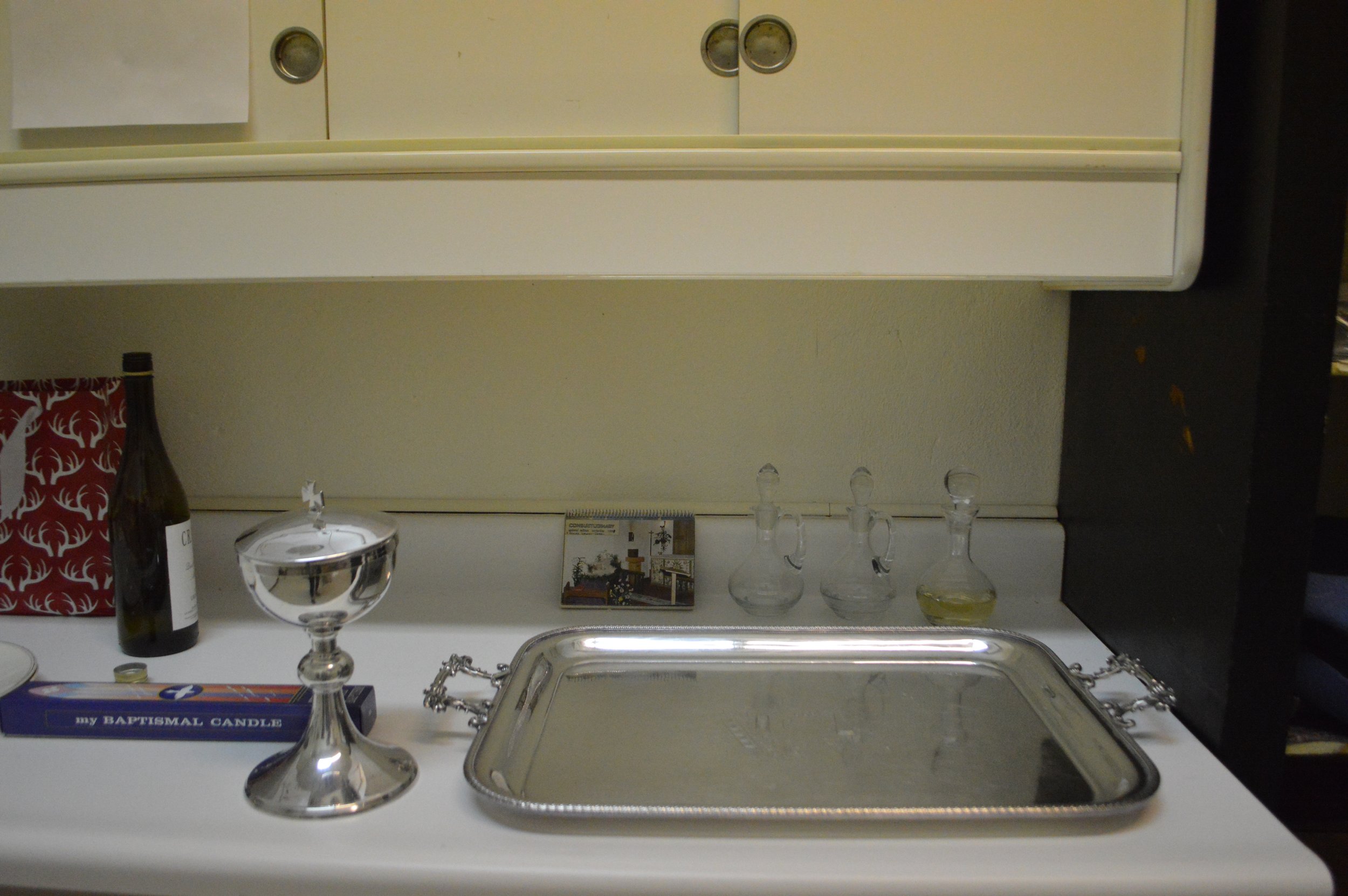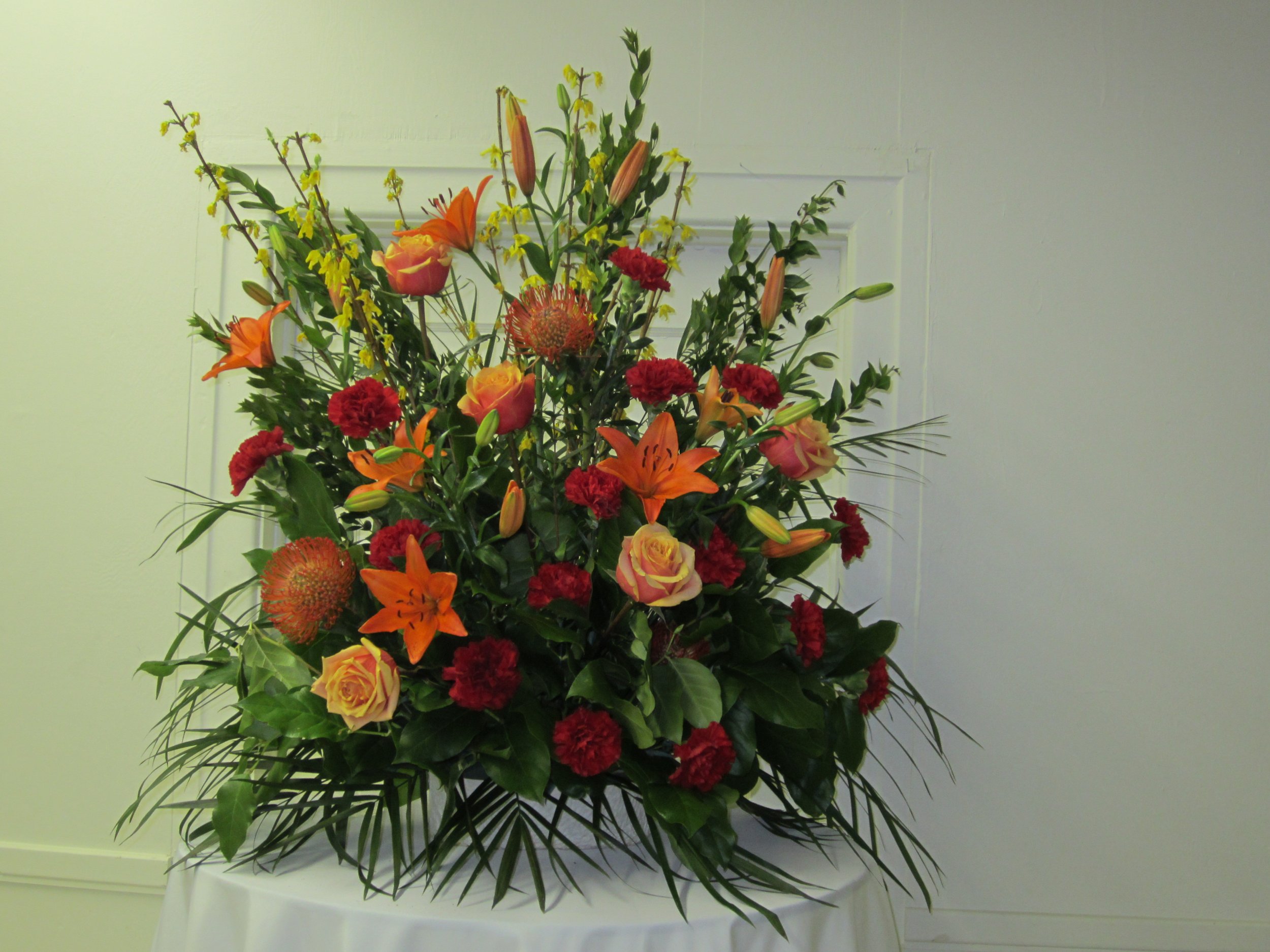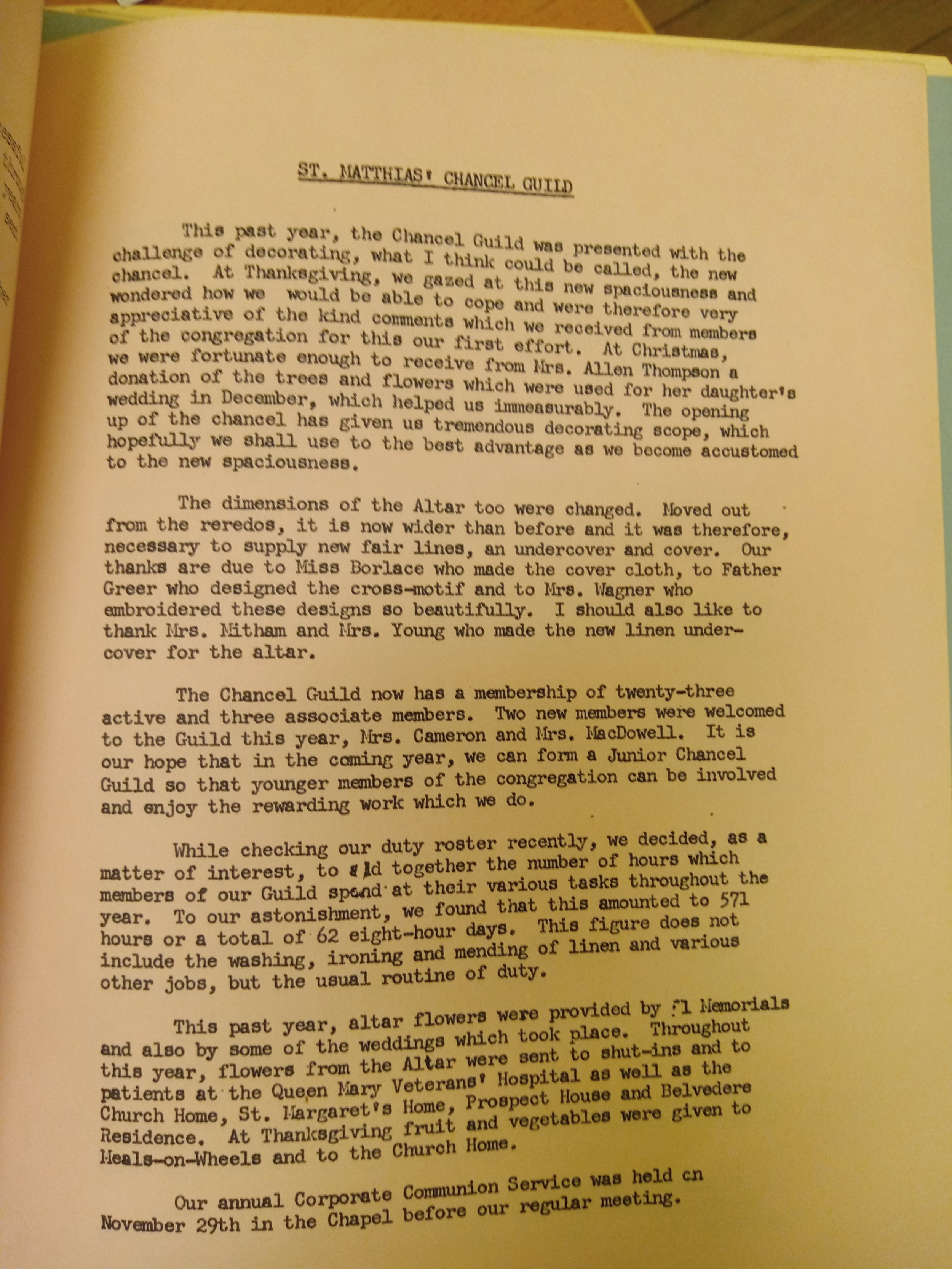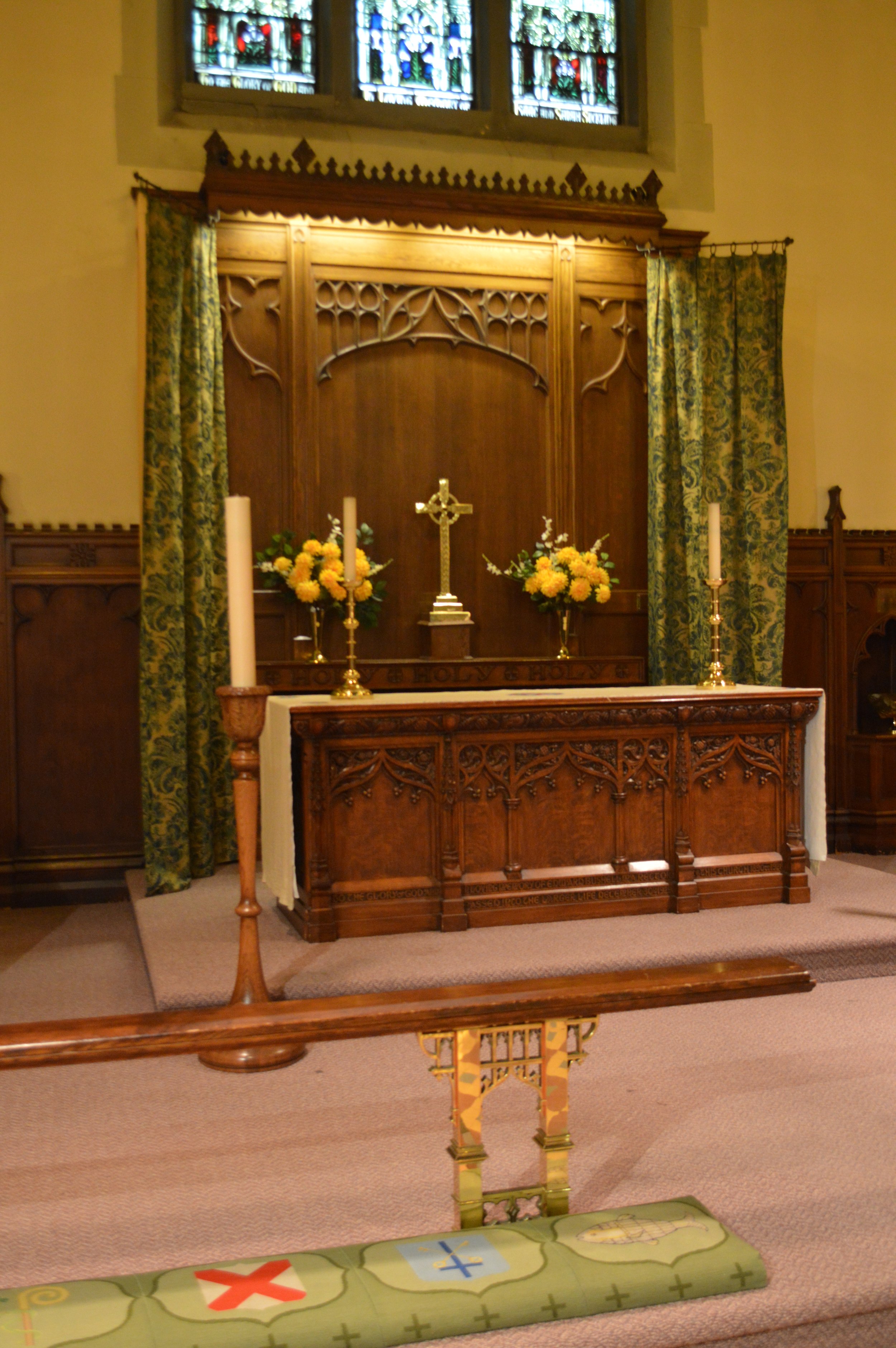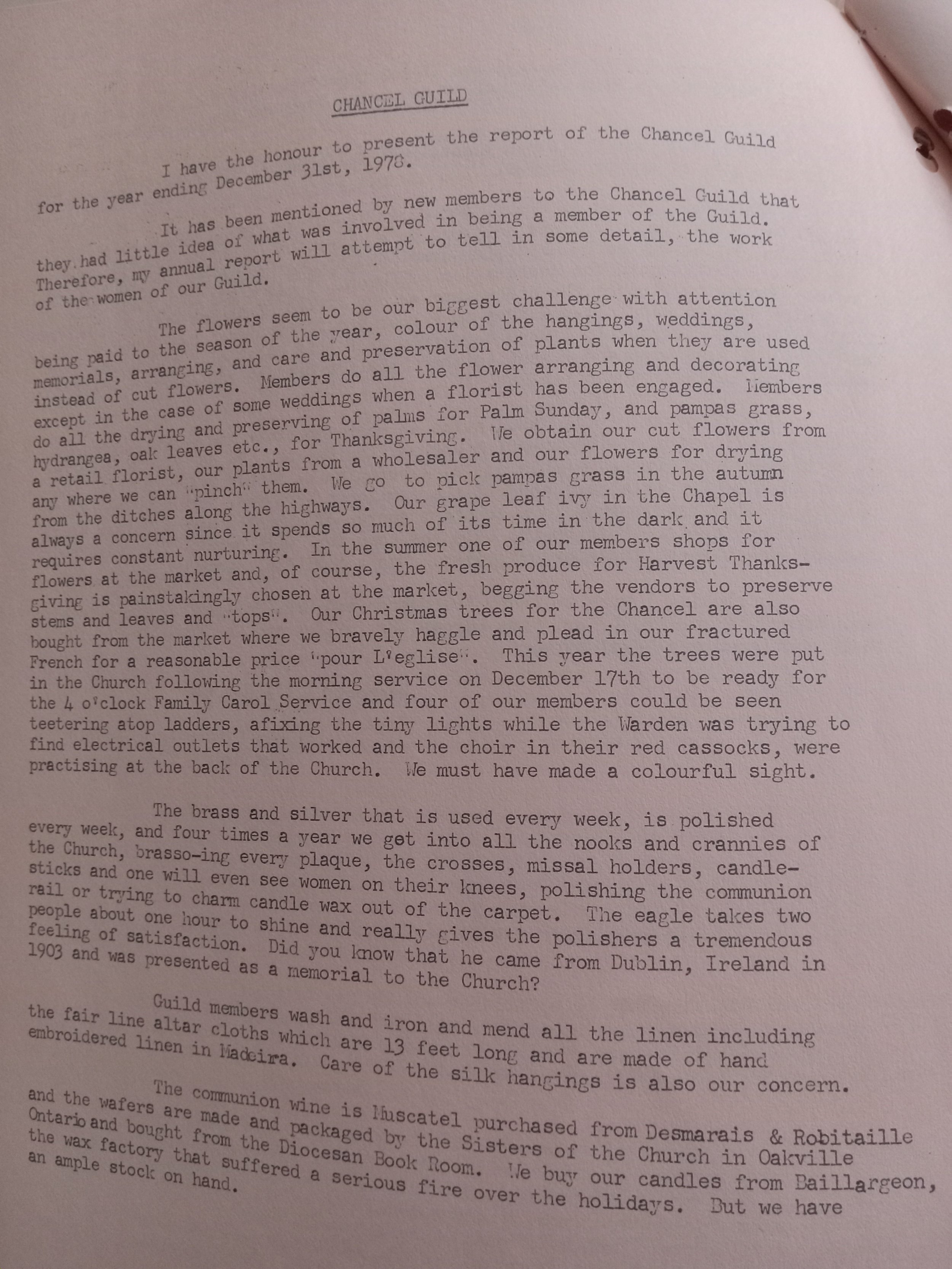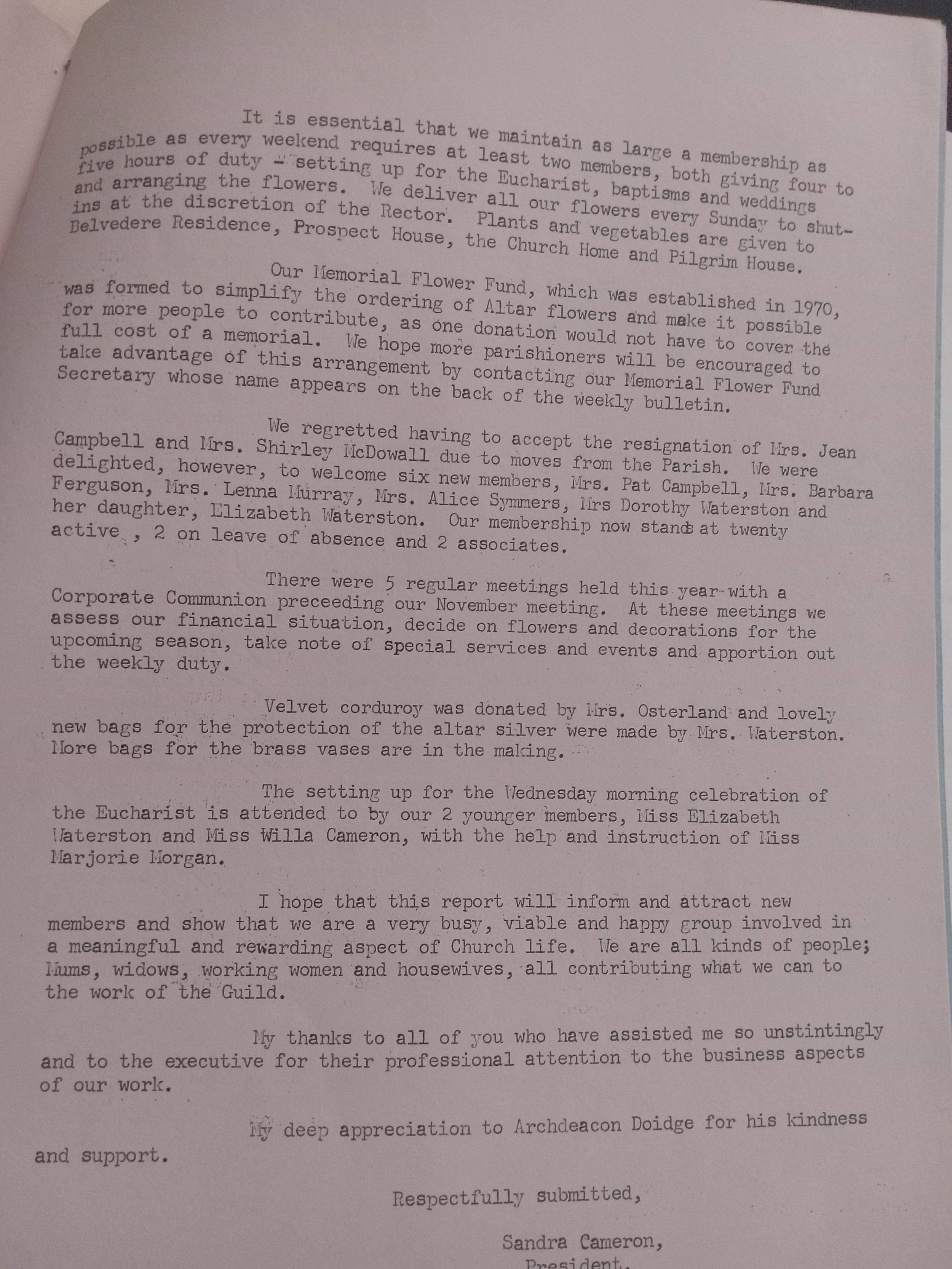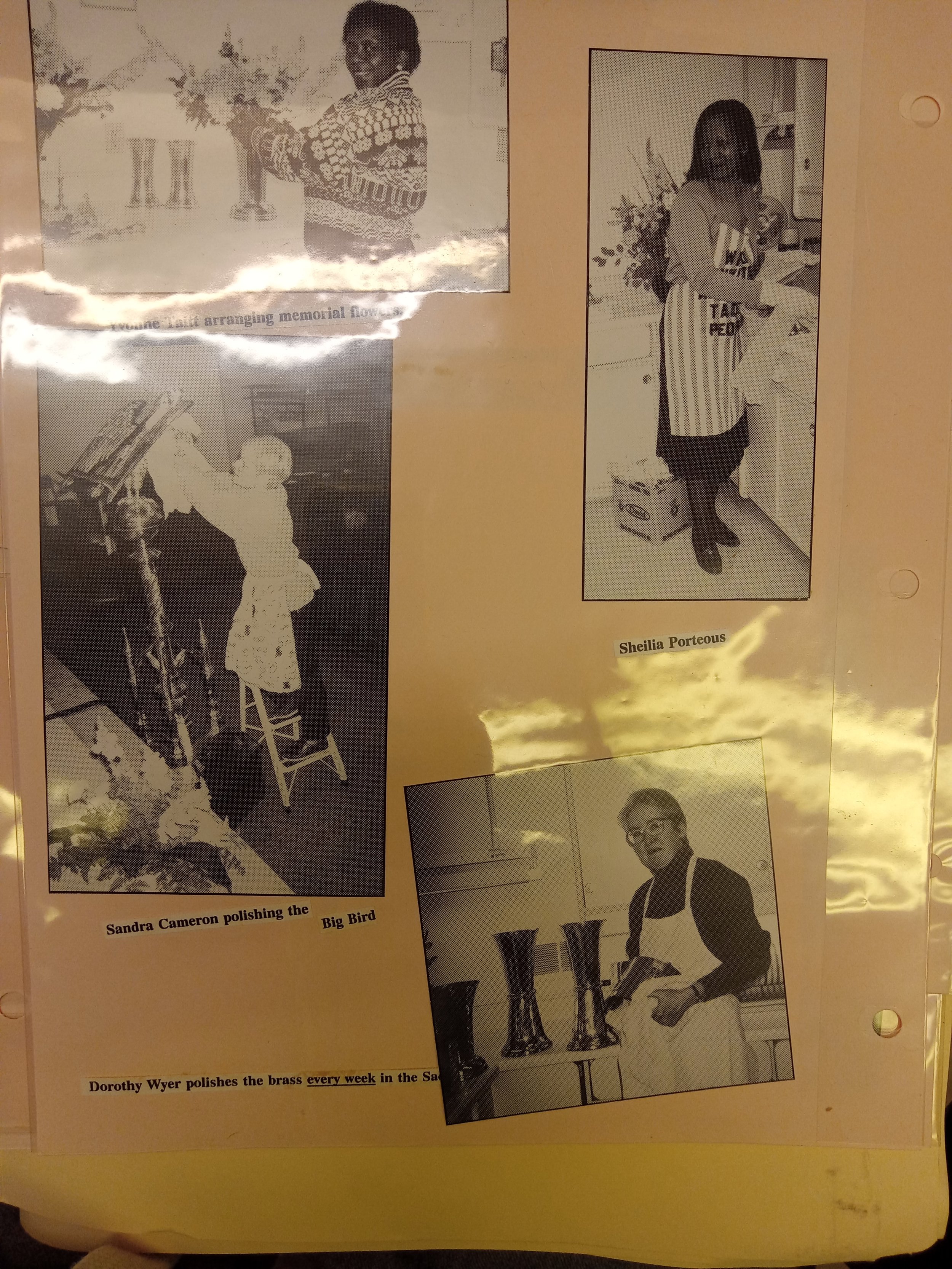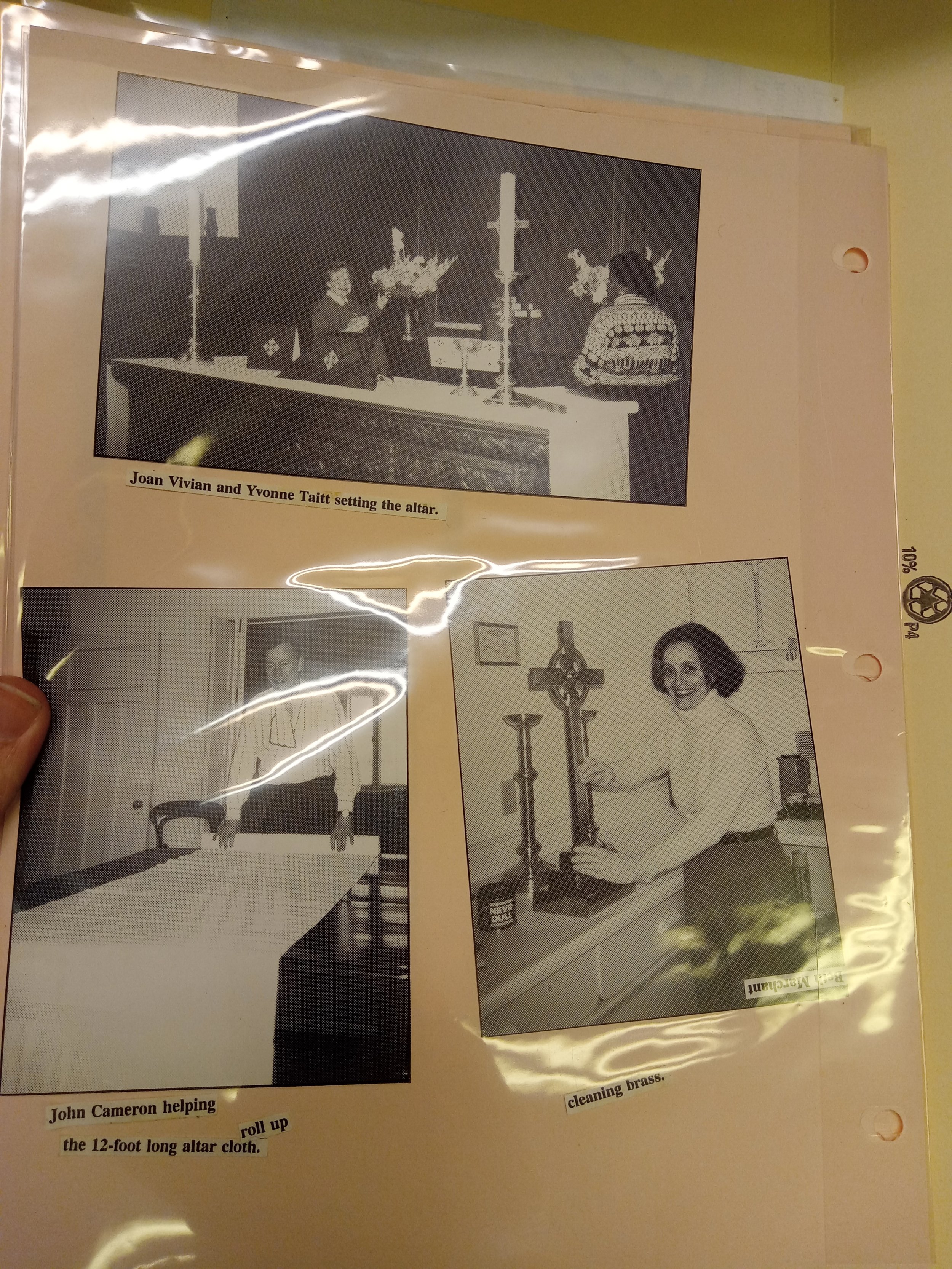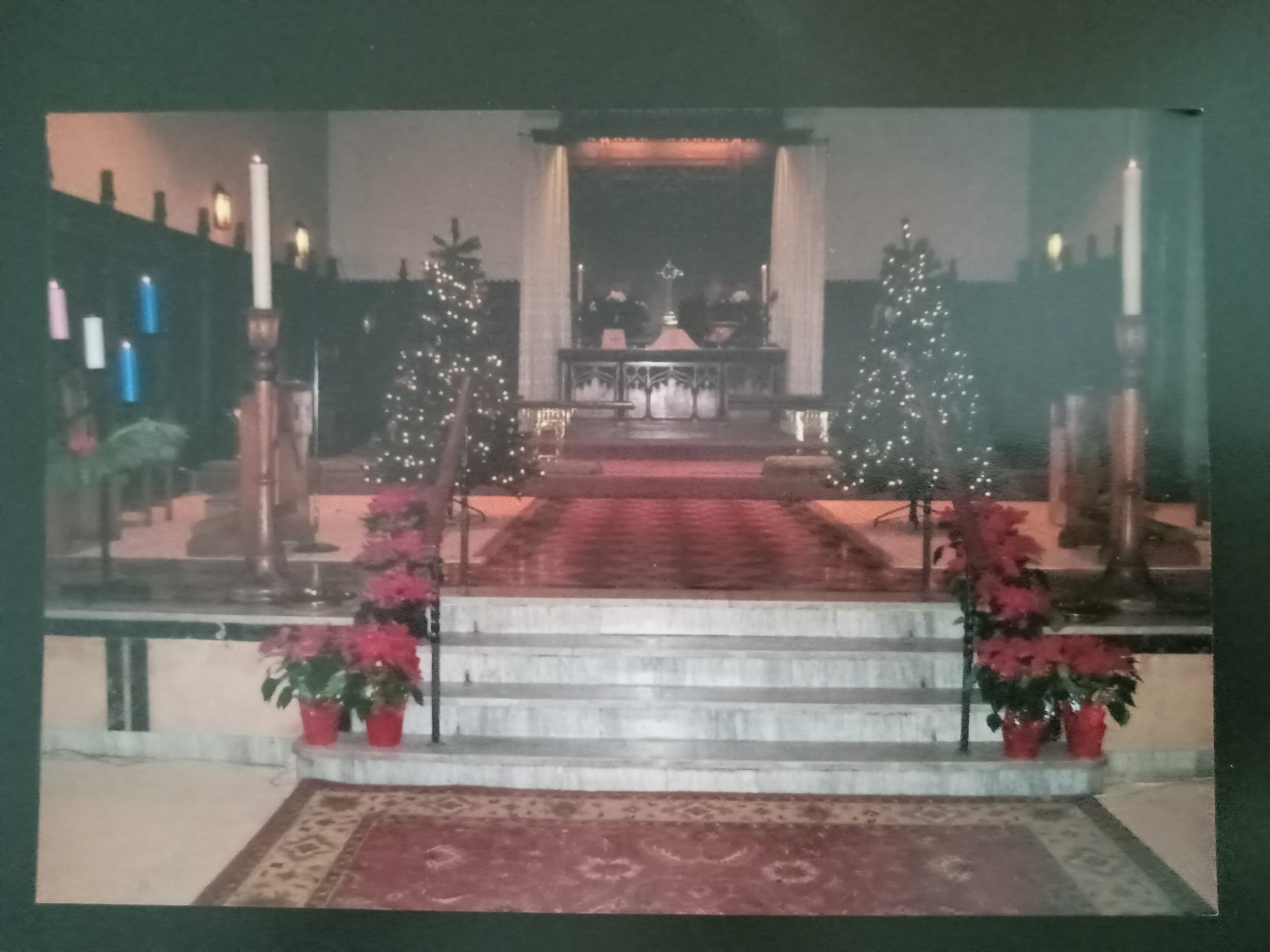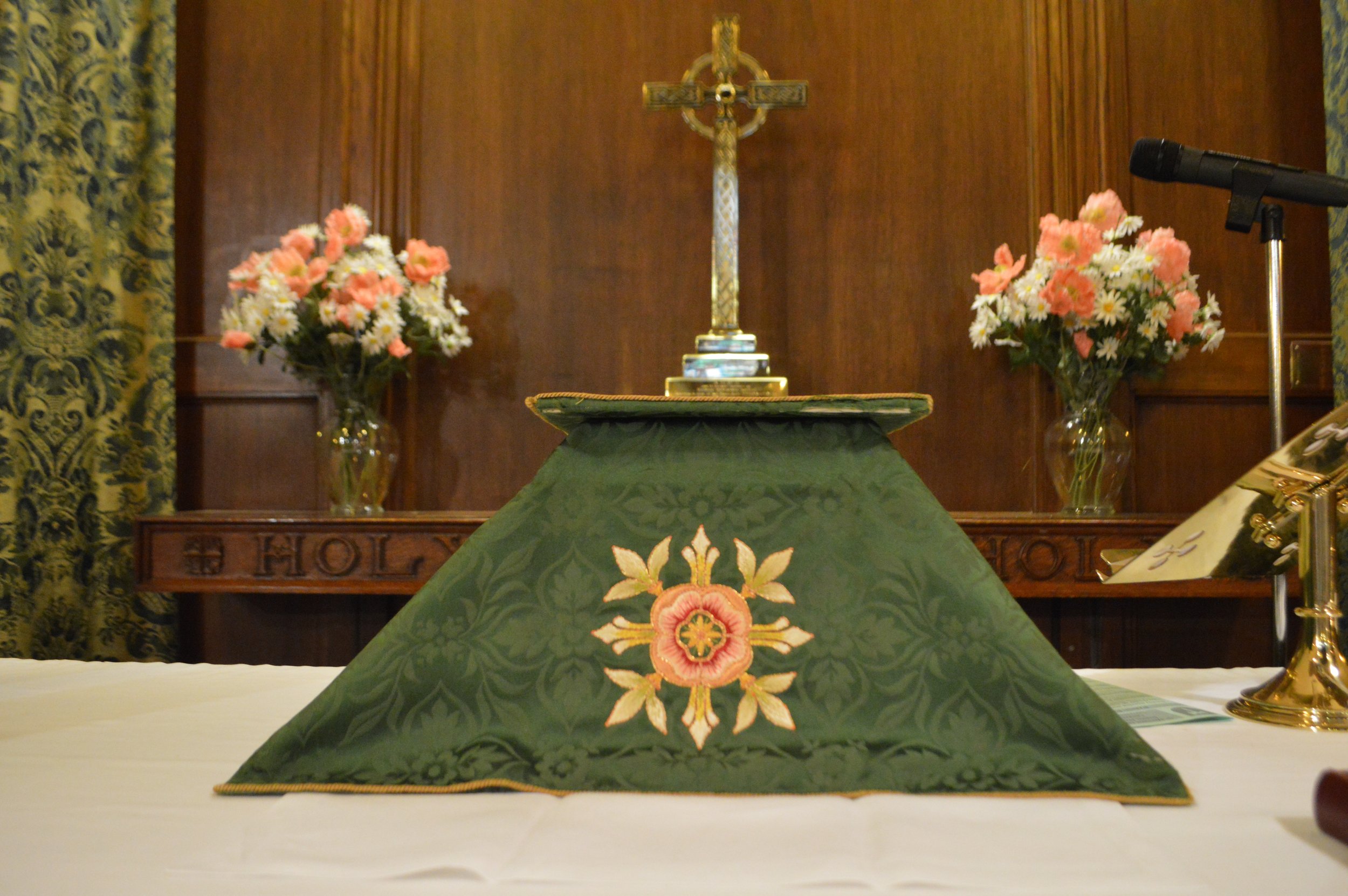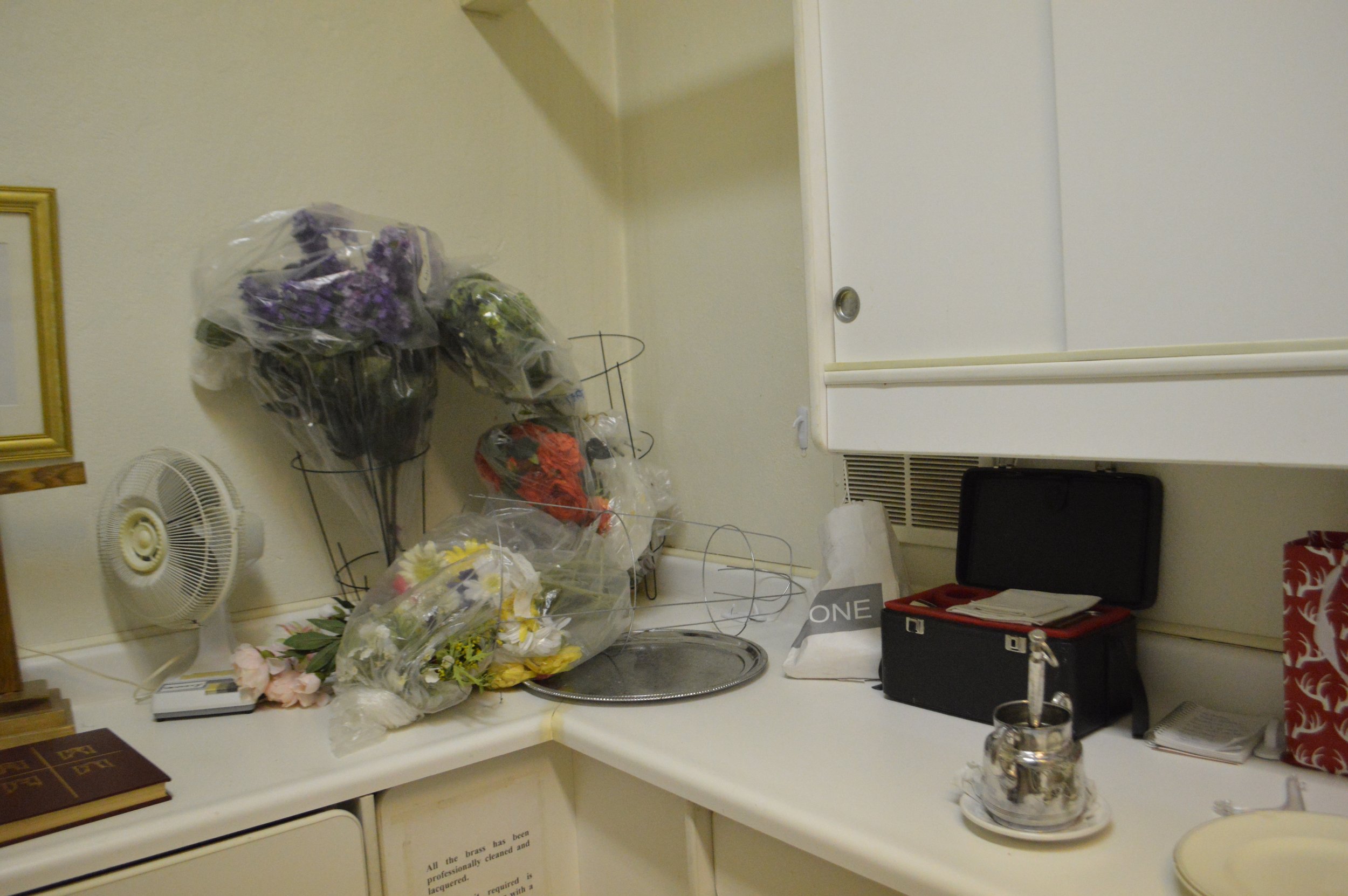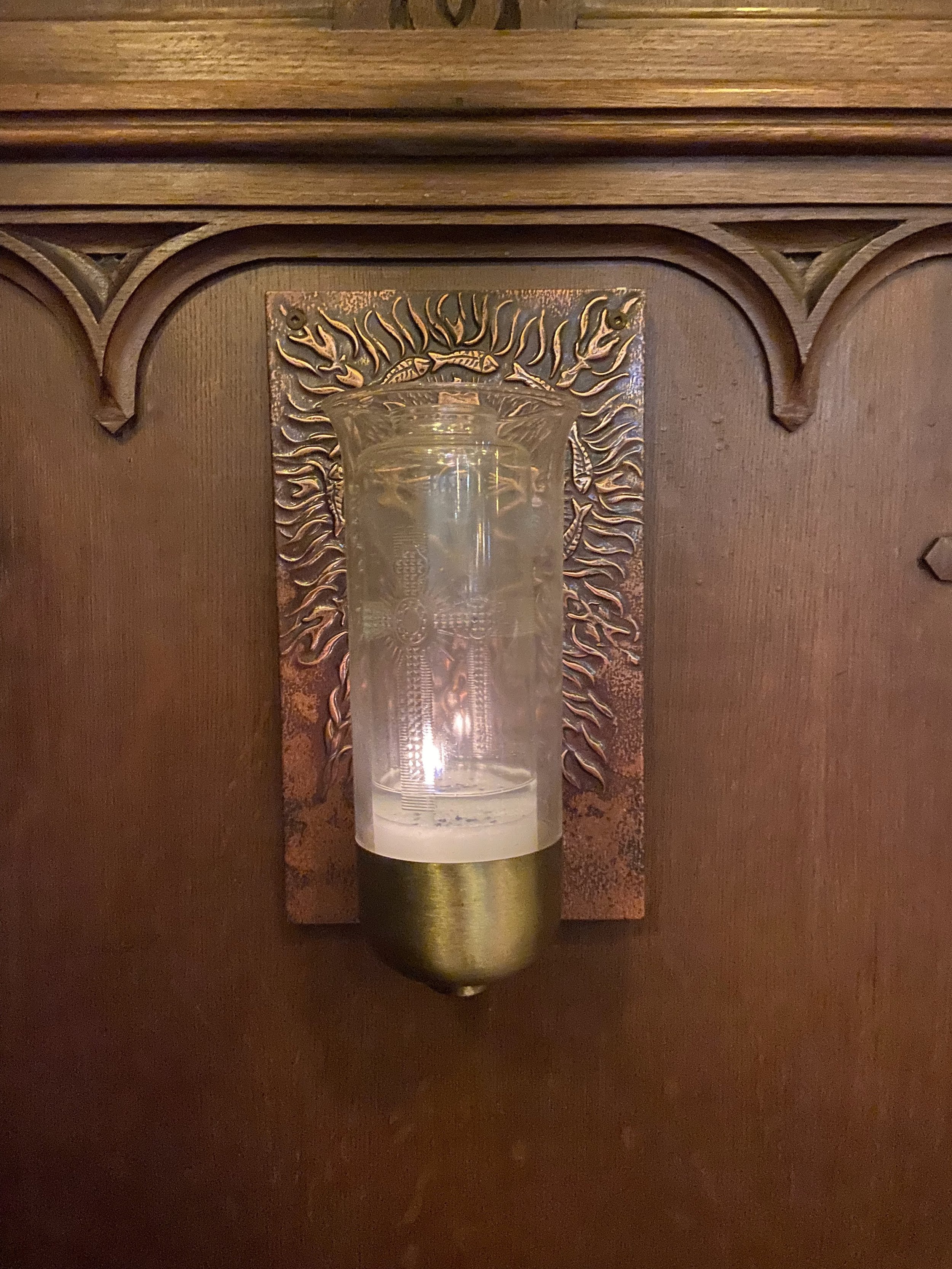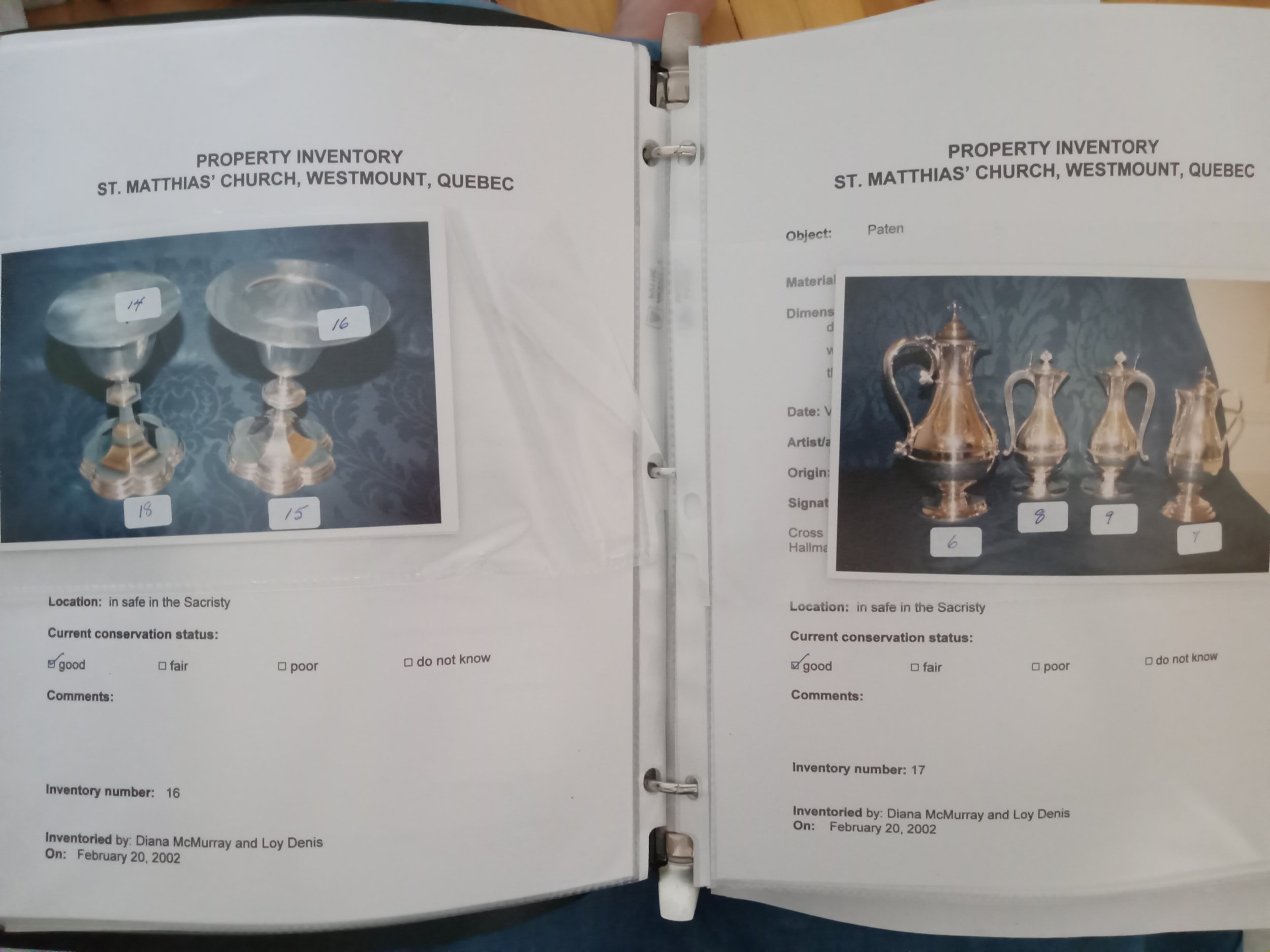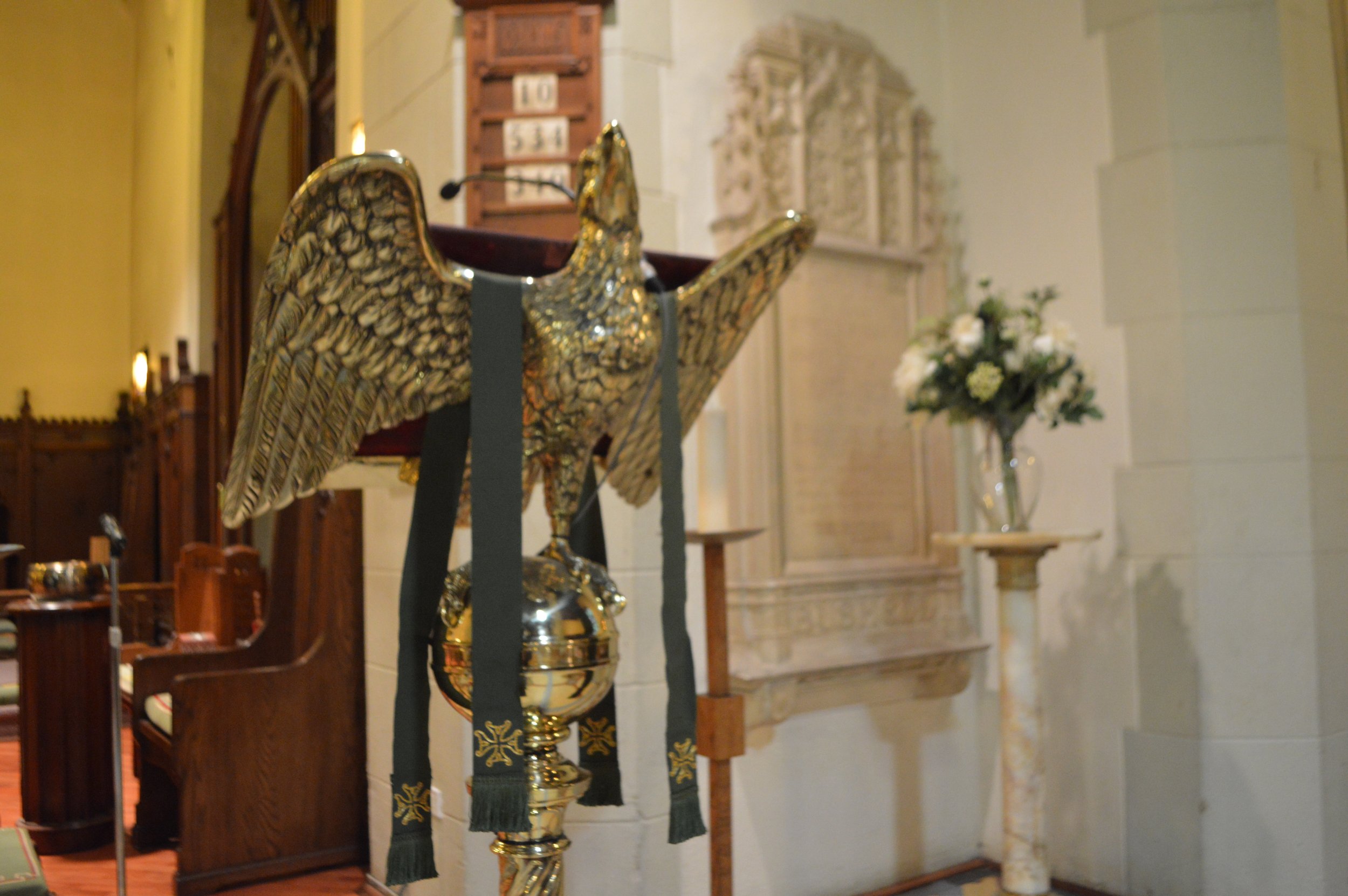September 3rd: The Chancel Guild
St. Matthias’ was officially founded as a mission of St. George’s, Place du Canada, in 1873, which means our community is 150 this year! For the next 12 months, we’ll be diving into the archives to shine the spotlight on particularly interesting parts of our history.
A thank-you note from then-warden Jane Bradley to the St. Matthias’ Chancel Guild, expressing gratitude for their work supporting the 100th anniversary of the new building in 2012.
Where would St. Matthias’ be without the Chancel Guild? As we switched liturgies, changed buildings, changed the interior of the current building, mucked around with service times and locations, and rotated through priests, curates, and honorary assistants, the Chancel Guild has kept up and kept us all on track.
The first mention of the Chancel Guild, in 1939’s Vestry minutes, implies that they are already a longstanding organisation, which makes sense; the first Manual for Altar Guilds had been published in 1892 in answer to need arising from Anglican churches as they tried to sort out “the formation and work of Altar Societies or Guilds,” and St. Matthias’ own Association of Women, of which the Chancel Guild was for many years a subsidiary organisation, had been active since at least 1901. Someone, after all, needed to light candles and set out the bread and wine, even before St. Matthias’ acquired the silver, brass, silk, and linen that today’s Chancel Guild cares for.
Rev. Gilbert Oliver gave the Association of Women reports in 1939, declaring of the Chancel Guild that it “does such excellent work that I can hardly find words to express my appreciation.” Part of that work, which continues today, would have been setting up Rev. Oliver’s travel communion set, which he would have used to bring the Eucharist to shut-ins in the parish and on hospital visits. Fr. Patrick’s set, pictured above, is similarly stocked and polished by today’s Chancel Guild. Later in the meeting, Rev. Oliver advocated specifically for the Chancel Guild to have a room dedicated to their own particular use. He estimated such a room would cost between $500 and $700 ($11-15,000 in today’s money), but because of nationwide fundraising efforts connected to World War II, the proposal was shelved. Three years after the end of the war, in 1948, while the Association of Women was busily covering major church expenses like the laying of a new floor between the parish hall and the church, Chancel Guild room donations were still being solicited and “there [was] not yet any immediate prospect of construction being undertaken.” The Guild would eventually get a proper sacristy, the room that is now Fr. Patrick’s office, but the current sacristy is the result of some major change-ups in the church – and the Guild – in the 1970s.
In 1970, the availability of a new prayerbook from New Zealand prompted St. Matthias’ to experiment liturgically, moving a temporary altar to the base of the chancel steps from 9:30 Eucharists throughout the autumn. Inspired by this new, more accessible liturgy, the Chancel Guild introduced a new element to their November/December meeting and began it with a “Corporate Communion” in the Memorial Chapel. They also innovated with their money that year, setting up a Memorial Fund to allow people to contribute to floral arrangements without any one person having to bear the whole cost of flowers. While the Guild no longer has communion at their meetings, the bank account persists, allowing members of the congregation to contribute to fresh flowers for Easter and Christmas and fresh fruits and vegetables for Thanksgiving.
In 1973, of course, an even more significant change occurred: moving the organ and choir to the back of the church gave the Chancel Guild “tremendous decorating scope” and the report to Vestry that year sounds a little delirious about the possibilities. That year, the main altar was moved forward from the reredos. The question of whether a presider should face the altar or face the congregation (or face the side of the altar, as the original 1549 Book of Common Prayer prescribed!) has been a contentious one in the history of Anglicanism, but by the 1970s almost all Anglican churches had moved to the practice that St. Matthias’ currently uses, with the priest behind the altar facing the congregation. The shifting forward of the altar meant a whole new side to be covered and the Guild busied themselves commissioning new linens and a new altar cover as a result. That year, Guild members spent 571 hours – not counting washing, mending, and polishing – setting up for services.
The 1978 Chancel Guild Report to Vestry provides us the most detailed glimpse into the historical practices of the Guild, detailing their flower-related maintenance, their foraging along highways for pampas grasses, their haggling with market vendors over Christmas tree prices, their precarious balancing on ladders, their weekly polishing of regularly-used silver and quarterly polishing of all other precious metals in the church, their trials getting candle wax out of the chancel carpet, their endless rounds of washing and ironing, their purchasing habits for wine and wafers, their distribution of flowers after services, their financial meetings, and their constant improvement of their own supplies.
It is remarkable how, 45 years later, the tasks remain largely unchanged. The Guild largely uses silk flowers now, from a large collection of specially-curated blooms acquired over the past decade and a half, and the brass and silver have a special coating that dramatically reduces the need to polish, but otherwise a contemporary Guild member would recognise their service in this description. They still keep the Presence Light lit whenever there is consecrated Eucharist in the ambry, they still decorate according to liturgical season and ensure the flowers are appropriate for the external season, they still iron endless linens and send the vegetables from the Thanksgiving display to a local food bank.
Guild meetings still happen four times a year (with dinner and plenty of wine), and the Chancel Guild is always looking to welcome new members of any gender or age! Although it no longer takes two people five hours to manage all the duties of a given Sunday, the Guild still believes that spreading out duties across many members is the best way forward. And, plus – caring for beautiful things is really its own reward.


